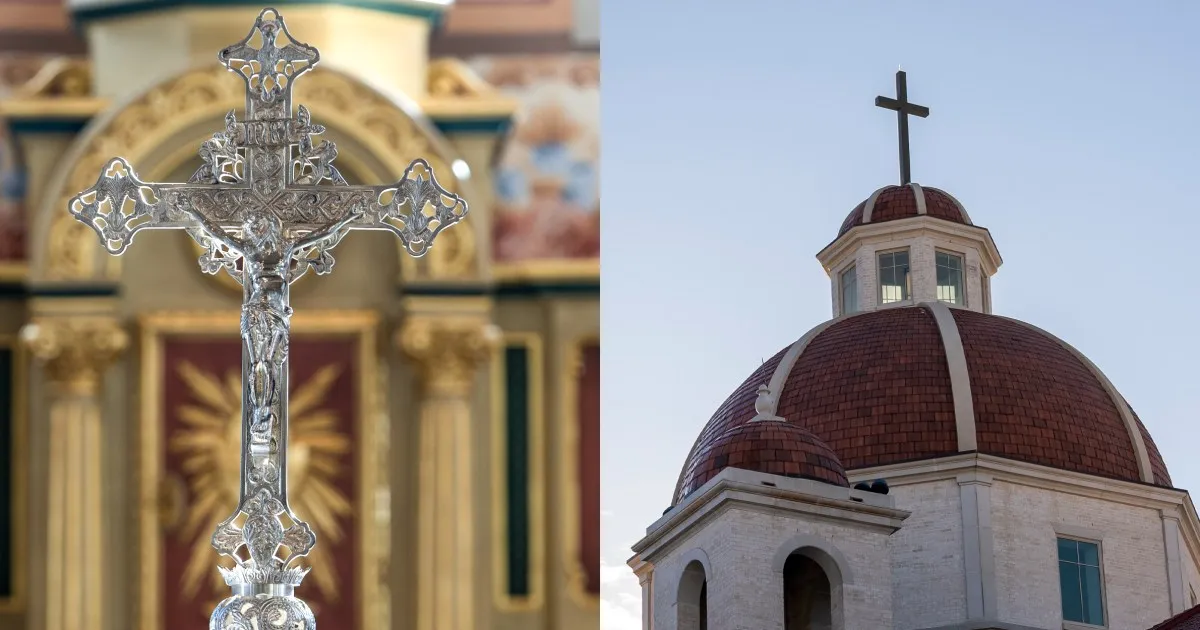
On Wednesday, the Supreme Court will hear a pivotal case that could significantly impact the separation of church and state. This landmark case revolves around the approval of Oklahoma's first-ever religious public charter school, the St. Isidore of Seville Catholic Virtual School, which is positioned to operate online across the state with a mission to promote the Catholic faith. While the immediate focus is on this specific institution, the implications of the ruling could reverberate throughout the nation.
The dispute illustrates the complexities surrounding the First Amendment of the U.S. Constitution, which encompasses both the Establishment Clause—prohibiting government endorsement of religion—and the Free Exercise Clause, which protects against religious discrimination. The legal teams defending St. Isidore, alongside the Oklahoma Statewide Charter School Board, argue that preventing religious entities from running charter schools infringes on the Free Exercise Clause. They assert that prohibiting such applications is a violation of religious freedoms.
Michael Scaperlanda, chancellor of the Archdiocese of Oklahoma City and a former law professor, expressed that the proposal is not about establishing a religion but rather about the government recognizing the value of private entities, including religious ones, in providing educational services. This perspective aims to highlight the potential benefits of including religious organizations in the charter school landscape.
Conversely, Oklahoma Attorney General Gentner Drummond, a Republican, has voiced strong opposition to the approval of St. Isidore. He argues that the initiative represents a form of religious indoctrination, masking itself under the guise of religious liberty. Drummond's stance reflects a broader concern among public school advocates, who view the move as an assault on traditional public education.
The Supreme Court's recent rulings have increasingly fortified the Free Exercise Clause rights of religious individuals and organizations, sometimes at the expense of the Establishment Clause. This evolving judicial interpretation has led some conservative factions to argue that the strict separation mandated by the Establishment Clause is misconstrued.
The case brings forth two critical legal questions. Firstly, the court must determine whether charter schools are considered public schools—effectively extensions of the state—or private entities that merely receive state funding. If deemed public, the state could impose secular requirements on charter schools to avoid violating the Establishment Clause. Conversely, if they are classified as private, barring religious schools from participation could be deemed discriminatory under the Free Exercise Clause.
Adding complexity to this case is the recusal of Justice Amy Coney Barrett, who has not disclosed her reasons for stepping aside. Her absence could lead to a 4-4 split among the justices, which would leave the Oklahoma Supreme Court's ruling—declaring the school unconstitutional—intact. Barrett's previous role as a law professor at Notre Dame, where the university's Religious Liberty Clinic represents St. Isidore, raises questions about potential conflicts of interest.
The authorization of religious public charter schools aligns with the broader school choice movement, advocating for the use of taxpayer funds for private education. However, proponents of public schooling argue that this trend poses significant threats to public education systems. The legal team for St. Isidore emphasizes that their case is solely about exercising religious freedoms, referencing recent Supreme Court decisions that have ruled against states prohibiting religious entities from participating in programs available to nonreligious groups.
Drummond, in his legal briefs, argues that charter schools in Oklahoma function as public schools and thus should be subject to secular regulations. A ruling in favor of St. Isidore could set a precedent, allowing religious entities to participate in charter school programs across the country, potentially upending existing laws in the 46 states that currently prohibit such involvement.
Drummond warned that a decision favoring St. Isidore could raise serious questions about charter school regulations nationwide, potentially granting religious charter schools special status. This could lead to conflicts with laws that prohibit public funding for private institutions, regardless of their religious affiliations. The case also has implications for federal funding programs, which currently restrict financial assistance to sectarian schools.
In June 2023, a state board approved the proposal for St. Isidore, despite concerns regarding its religious implications. In response, Drummond sought legal intervention, prompting the state Supreme Court to rule that the charter school plan violated both state law and the First Amendment. The outcome of this case is poised to reshape the landscape of charter schools and religious education in the United States.